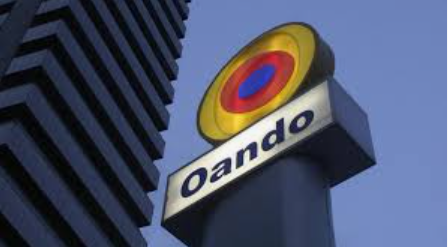Oando Plc, a prominent integrated energy company listed on both the Nigerian Exchange and the Johannesburg Stock Exchange, has unveiled its audited financial results for the fiscal year 2024, showcasing substantial growth and strategic advancements across its diverse portfolio. The company reported a remarkable 267% surge in profit after tax, reaching N220 billion, compared to the previous year. This impressive financial performance is underpinned by a significant 44% increase in revenue, which climbed to N4.1 trillion from N2.9 trillion in FY 2023. This robust growth trajectory highlights the company’s successful execution of its strategic initiatives and its ability to capitalize on emerging opportunities within the energy sector.
A key driver of Oando’s stellar performance is the successful acquisition and integration of Nigerian Agip Oil Company (NAOC). This transformative acquisition, completed in August 2024, has significantly bolstered Oando’s upstream portfolio, granting it operatorship of the OML 60-63 series and doubling its working interest in these assets to 40%. This strategic move has significantly expanded Oando’s production capacity and reserves, solidifying its position as a leading player in the Nigerian oil and gas industry. The acquisition’s impact is already evident in the company’s FY 2024 results, which include approximately four months of NAOC’s contributions.
Oando’s upstream operations witnessed notable growth, with a 3% increase in production to 23,727 barrels of oil equivalent per day (boepd). This growth was primarily driven by a 27% increase in crude oil production to 7,558 barrels of oil per day (bopd), partially offset by declines in natural gas liquids (NGL) and gas production. Significantly, the company’s proven and probable (2P) reserves experienced a substantial 95% year-on-year growth, reaching 983 million barrels of oil equivalent (MMboe). This impressive expansion of reserves, coupled with a robust reserves replacement ratio of 188%, underscores the strength and potential of Oando’s enhanced upstream portfolio following the NAOC acquisition. The company also maintained a high operational uptime of 86%, ensuring reliable off-take and minimizing deferred production.
Furthermore, Oando’s success reflects a broader trend of growth among indigenous players in the Nigerian oil and gas sector, spurred by the recent wave of divestments by international oil companies (IOCs). Companies like Seplat and Aradel have also reported substantial revenue increases, demonstrating the growing capacity and influence of local players in the industry. This shift in market dynamics suggests a promising future for indigenous energy companies, as they capitalize on opportunities created by IOC exits to expand their operations and market share.
Oando’s downstream segment, however, faced some challenges in 2024. Crude oil sales by the company’s trading subsidiary declined by 37% to 20.7 million barrels, attributed to structural changes in the Nigerian oil market. Refined product volumes also experienced a significant decrease of 64% to just over 599 thousand metric tonnes (kMT), due to weakening domestic demand resulting from challenging macroeconomic conditions in the country. These downstream challenges highlight the complexities and volatilities inherent in the oil and gas industry, requiring companies to adapt to evolving market dynamics and economic conditions.
Despite these downstream challenges, Oando remains committed to its long-term growth strategy and has set ambitious production targets for the future. The company has provided a production guidance of 30,000-40,000 boepd for 2025, in line with its post-acquisition optimization plans for the NAOC assets. This near-term target forms part of Oando’s broader ambition to achieve a production level of 100,000 boepd within the next four years. This ambitious target underscores Oando’s confidence in its ability to leverage its expanded upstream portfolio, optimize operations, and capitalize on future growth opportunities.
Beyond its traditional oil and gas operations, Oando is also actively pursuing a clean energy agenda through its renewable energy business. The company has made significant strides in its electric mass transit program, covering over 121,000 kilometers, transporting over 205,000 passengers, and displacing over 163 tonnes of CO2 emissions in 2024. Oando is also exploring wind energy projects in Cross River and Edo states, conducting a geothermal feasibility study in collaboration with NNPC, and investigating the potential for converting mature wells into renewable power assets. These initiatives demonstrate Oando’s commitment to diversifying its energy portfolio and contributing to a more sustainable energy future. By embracing clean energy technologies and exploring innovative solutions, Oando aims to position itself as a leader in the transition to a lower-carbon energy landscape.














